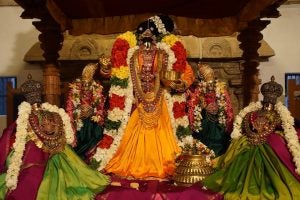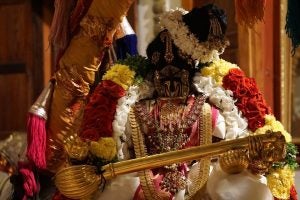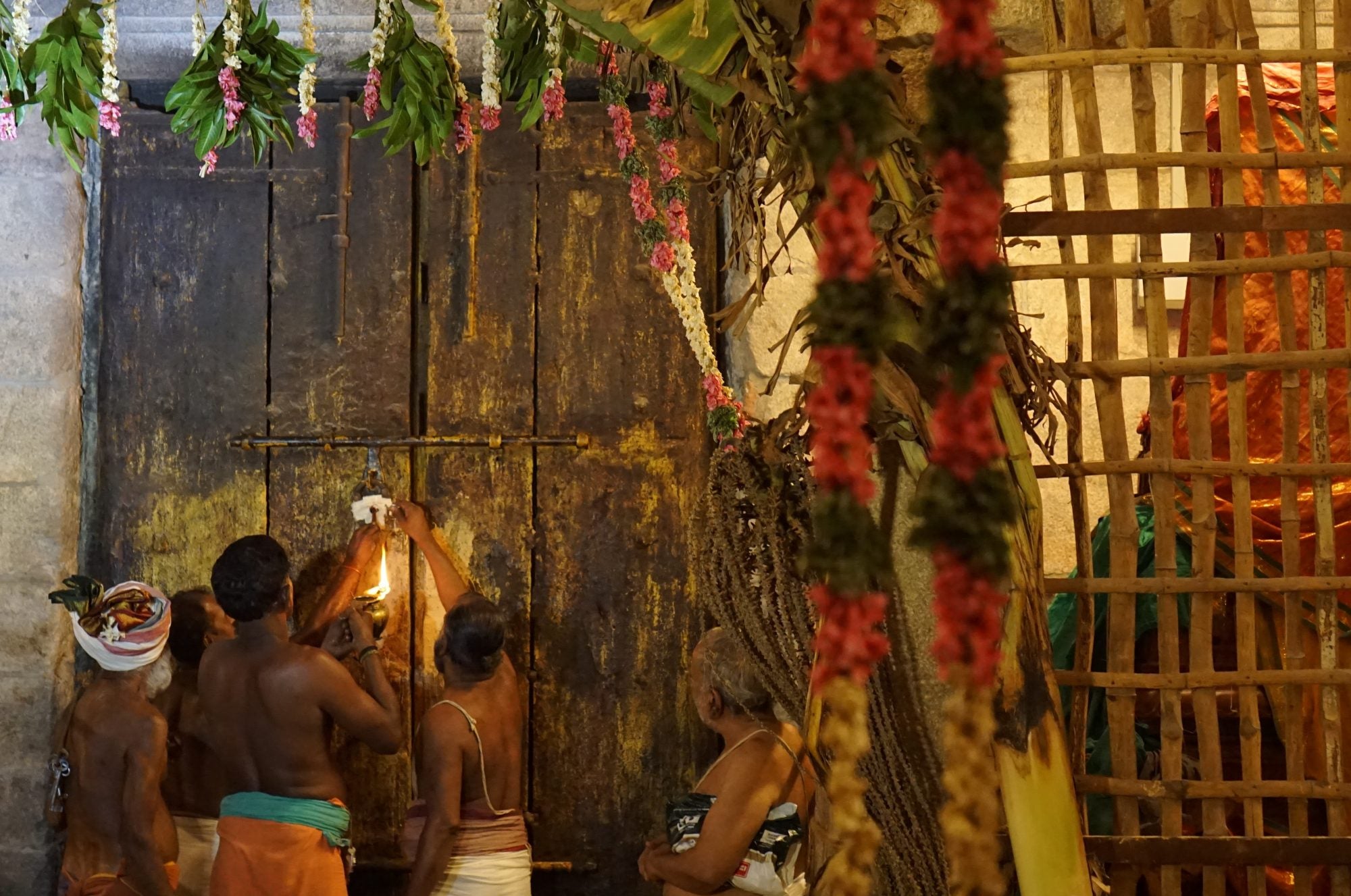Adhyayanotsavam Day 9. (Dec 27)
Texts: Periya Tirumoli 8th and 9th Hundreds
Tirukkolam: Amrita Mohini and Vina Mohini
I could only think of anticipatory transition yesterday. The day before pakal pattu concludes; the last day of kaleidoscopic alankaras, of multiple forms. Tomorrow, we return to stability of a sort, of a different kind of movement, and the love of a very different kind of poet. In my years of following this festival, I am always struck by the interplay between image and sound, between hearing and sight. Tirumankai keeps using the phrase, kandu-konden, I’ve seen/sought and found. It’s the refrain at the end of the opening decad of the Periya Tirumoli. You have to seek to see, see to seek, yes?
The alankaras draw you naturally towards sight, but this is after all the festival of recitation, of sound. I will write separately about sound, about the language of instruments, of the places of silence, and of unseeing as well, in a separate post once I can make sense of my somewhat inchoate thoughts. Those do not always go together–sound often directs one how to see when one cannot actually see. Imagination activated to hyper reality.
When Nambi becomes Mohini (as do many Vishnus in different temples, almost invariably on this 8th day of pakal pattu), it points us not just to transformation, but to a primordial story of experience–the churning of the ocean of milk, about which Vasudha Narayanan has thought extensively. While most temples give us only one iteration of Mohini, with the golden pot filled with the sweetest most precious nectar–here, in Tirukkurungudi, we get a second Mohini, playing the vina. One could be forgiven for mistaking her for Sarasvati, but this is a god of trickery, and this is part of the play.

As Amrita Mohini, s(he) towers like a sun, glowing orange, afire with the nectar of immortality. It’s a beauty that burns. In the evening, she is white as the full moon, as though draped in the ocean of milk itself. It’s a beauty that soothes. S(he) is the sun and moon, disc and conch, dark and light, in short, all of time itself.

On this day of almost transition–anticipatory transition–it makes sense that we are offered the nectar of immortality, and are invited to contemplate the nature of time itself–for that will loom large once the gates of heaven open tomorrow, on Vaikuntha Ekadasi.
